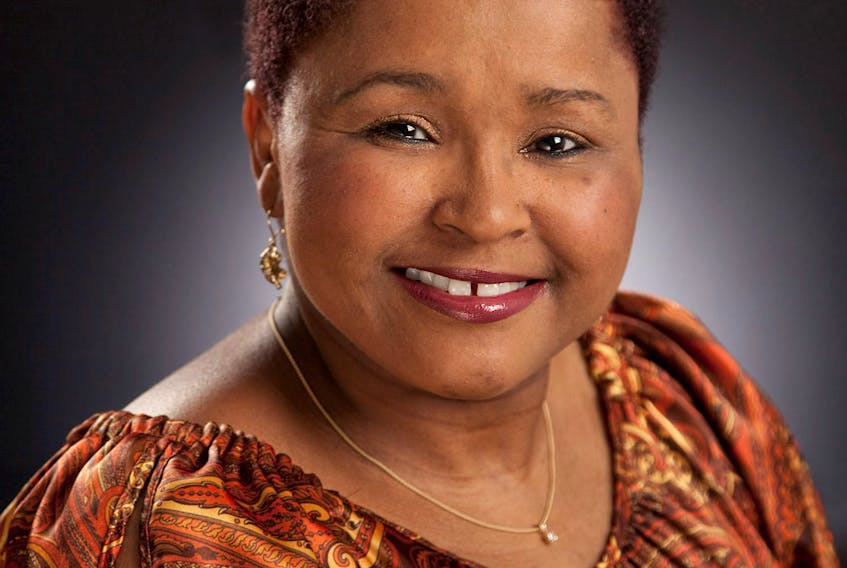Nobody should be surprised that the Halifax Regional Police have yet to act on a slew of independent recommendations aimed at ending the force’s historic practice of racial profiling, says an African Nova Scotian scholar.
Barb Hamilton-Hinch predicted what would be in the freedom of information documents presented by NDP justice critic Claudia Chender at the Nova Scotia legislature last week.
“If HRP was taking these recommendations seriously we wouldn’t be seeing some of the situations that we’re seeing," said Hamilton-Hinch, an assistant professor at Dalhousie University’s School of Health and Human Performance and an expert in institutional racism.
She pointed to recent widely publicized racially charged incidents involving HRP.
In January, a young black mother, Santina Rao, was seriously injured by HRP officers at Halifax Walmart after objecting to being accused of shoplifting. A few weeks later a 15-year-old black boy in Bedford suffered injuries after being arrested by officers but he was never charged.
The documents produced by the NDP contained a roughly one-year update on HRP’s progress following a street checks report by University of Toronto criminology professor Scot Wortley. The March 2019 report was the impetus of a ban on provincewide street checks that came months after as well as a public apology from Chief Dan Kinsella.
Education a priority
The update showed HRP had not begun working on 21 of the 54 recommendations, while work on 14 of the recommendations are in progress. Most of those yet-to-be-acted on recommendations concern measures to improve relations with the black community, including tighter screening of recruits and antibias, cultural competency and race relations training and testing for all officers.
Hamilton-Hinch, who grew up in the African Nova Scotia communities of Beechville and Cherry Brook, said HRP needs to make education in these areas a priority for its officers. That starts at the community level, working to repair decades worth of damage.
"Change is taking too long and while we wait people of African descent are being affected, drastically affected when we’re continuing to hear, see and experience insult and harm at the hands of HRP."
Chender agrees. The Dartmouth South MLA confronted Justice Minister Mark Furey in the legislature on HRP’s lack of progress in following Wortley’s road map. Chender was unable to get the minister to commit to a timeline for when both his department and HRP would adopt the recommendations.
Furey maintained that Wortley’s road map remains a priority for his department, saying it is an "important discussion we are all focused on."
"I look forward to the day when all those recommendations are completed," he said
Both Chender and Hamilton-Hinch believe it's vital that HRP hangs on to its street check data, minus any personal information. It is another of Wortley’s recommendations that neither HRP or Furey has committed to. The information - race, age and gender- provides important historical data that would hold the force accountable.
"As a researcher, we often learn from the past to look to see if things have changed," said Hamilton-Hinch. "Destroying that data is almost like erasing the past, it’s like destroying evidence."
Chender also pushed Furey on the issue to which he committed to having discussions with HRP but offered no guarantees.
"There are differing positions on the use and value of that (information) and we want to be sure we land in a space that’s appropriate for all," he said.
The force is scheduled to destroy all of the data by December except information "not identified for further retention."
In an emailled statement, HRP spokesman John MacLeod said that "de-identified data will be retained for potential research purposes."
The Chronicle Herald asked whether all the data would be retained but got no response.
No timeline
The HRP statement said the force has been working with several stakeholders on “actioning the Wortley report,” and that "there has been good progress on several items.”
No timeline was provided for when or if all the recommendations would be completed. According to MacLeod, the force is working with the Department of Justice and a variety of stakeholders on "a know your rights and responsibilities campaign related to police interactions.”
“We will play an active role not only in helping create the campaign but also delivering it. Chief (Dan) Kinsella continues to work with community members on the various commitments to the November apology.”
But Chender said she wants to see more action and transparency proving that both HRP and the Justice Department are serious about following the map.
"The whole point of this issue is that this takes such an unbelievable toll on the lives of racialized Nova Scotians, particularly black Nova Scotians.
"What we're seeing and hearing is a continuation of racist incidences of racial profiling that’s totally contrary to all the work that’s been done for decades by the community and its allies."









